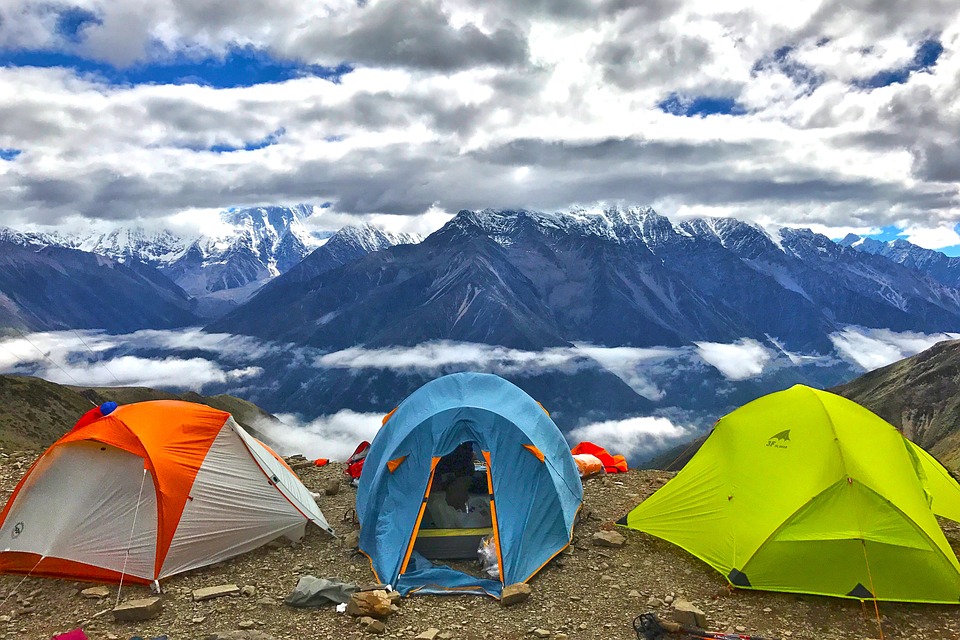Table of Contents
Introduction
Imagine disconnecting from the hustle and bustle of daily life, breathing in the fresh air, and immersing yourself in the serene beauty of nature.
Off-the-grid camping offers the perfect opportunity to experience the great outdoors in its purest form.
Away from the noise and distractions of modern civilization, you can truly connect with nature and rejuvenate your soul.
In this ultimate guide, we will explore everything you need to know about off-the-grid camping and how to embark on your own unforgettable outdoor adventure.
Choosing the Perfect Destination
When it comes to off-the-grid camping, choosing the right destination is crucial.
Look for secluded areas, national parks, or remote campsites that allow you to disconnect from technology and immerse yourself in nature.
Research each location to ensure it offers the desired level of solitude and access to the outdoor activities you love, such as hiking, fishing, or wildlife spotting.
Packing Essentials
Packing the right gear and essentials is essential for a successful off-the-grid camping experience.
Consider the following items:
- Tent or hammock for sleeping
- Sleeping bag, mat, or blanket for coziness
- Cooking equipment and meal provisions
- Water filter or purifier
- First aid kit and essential medications
- Proper clothing and footwear suitable for outdoor conditions
- Navigation tools such as a map and compass
- Flashlight or headlamp for visibility
- Fire-starting equipment and firewood (if permitted)
Survival Skills and Safety
Before venturing off-the-grid, acquire basic survival skills and knowledge of the area’s wildlife and potential hazards.
Learn how to start a fire, purify water, navigate using natural signs, and identify edible plants.
Additionally, let someone know about your camping plans and expected return date.
Always prioritize safety and follow local regulations when exploring the wilderness.
Disconnecting from Technology
One of the primary benefits of off-the-grid camping is disconnecting from technology.
Leave your smartphones, tablets, and laptops behind and fully embrace the simplicity of nature.
Disconnecting from screens allows you to be present in the moment, appreciate your surroundings, and connect with fellow campers or loved ones.
Leave No Trace
When camping off-the-grid, it is essential to follow the principles of “Leave No Trace.”
Respect the environment by minimizing your impact and leaving the campsite as you found it.
Dispose of waste properly, reduce noise pollution, and avoid damaging flora and fauna.
By practicing Leave No Trace, you help preserve the wilderness for future generations to enjoy.
FAQs Section
Q: How do I find off-the-grid campsites?
A: Research national parks, remote areas, and online camping guides to find off-the-grid campsites.
Look for secluded locations away from popular tourist destinations.
Q: Is off-the-grid camping safe?
A: Off-the-grid camping can be safe if you plan and prepare adequately.
Acquire survival skills, follow safety guidelines, and inform someone about your camping plans.
Q: How should I prepare for emergencies?
A: Ensure you have a well-stocked first aid kit, essential medications, and knowledge of basic first aid skills.
Familiarize yourself with emergency procedures and communication options in the area.
Q: Can I bring my pets camping off-the-grid?
A: Check the regulations of each camping location regarding pets.
Some campsites allow pets as long as they are well-behaved and kept on a leash.
Q: Are campfires allowed when camping off-the-grid?
A: Campfire regulations vary depending on the location and time of year.
Follow local guidelines, use designated fire pits when available, and never leave a fire unattended.




